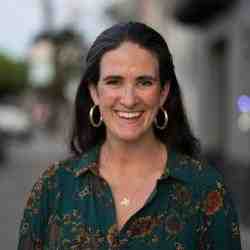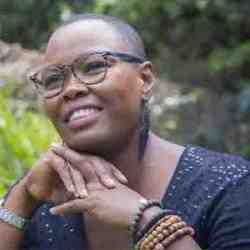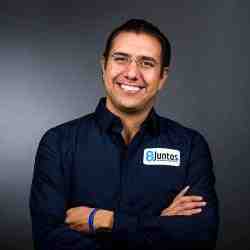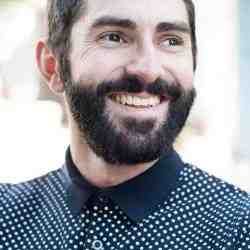Einführung
Danny is empowering the caregivers of children with Autism Spectrum Disorders (ASD) to define the future their children and families will have.
Die neue Idee
Danny is defining the field of Autism in Bangladesh by enabling parents and caregivers to shape strategic interventions that improve the quality of life, reduce stigma and integrate all children with Neurological Disabilities into society. In the process, Danny is shifting the fatalistic and lethargic view of parents/caregivers towards these children to being active role models, activists and shapers of a life of possibilities for all stakeholders.
Through her organisation PFDA-VTC (Parents Forum for Differently Abled-Vocational Training Centre), Danny is aggregating the collective power of parents/caregivers to support each other, share their experiences and then strategize interventions that directly address common pain points. In turn, Danny is not only helping shift the perspective of these caregivers towards possibilities for positive change but also putting in their hands the directives of interventions needed in relation to building policy, social, physical and economical infrastructure for children with autism to live a fulfilling life. Thus she is able to empower a powerful lobby or caretakers to drive change under their own accord and not rely on inefficient and stagnant public sector interventions that have for decades alluded those with autism.
Das Problem
The Ministry of Social Welfare in Bangladesh estimates that there may be close to 1.4 million children in the country who have Autism Spectrum Disorder (ASD) while other estimates state that the number is closer to 1 per 500 children. The number can never be known because of a lack of centralised database and the lack of formal diagnosis. Unfortunately due to a complete lack of understanding of ASD and other neurodevelopmental disabilities, the children who are affected as well as their families are among those who are the most ostracised and marginalised in the community today.
At the heart of the problem is the huge social stigma that comes with ASD. This stigma is not limited to the general citizen population but starts at the family level of the child. It is common for families to completely alienate and push aside their child if they see any sign of neurodevelopmental difficulties where many parents either leave their children, put them up for adoption or force them to live an isolated life. Due to societal stigma which trickles down at a household level, often these children live a life completely closed off, without reaching their potential and without having their basic human rights met. Due to a common misunderstanding among the general public, families who are seen with a child with ASD are often seen as being ‘cursed’ or having genetic issues, which could affect the ability for one of their other children to get married or limit opportunities for their families. This pushes caregivers to take a reactive approach and instead of push for the development of their children, completely shut them off so that they do not affect the rest of their family.
Exacerbating this problem further is a lack of critical infrastructure that exists to protect children with ASD and thus offer services that address their lifelong condition. Right from the policy level, ‘The persons with disability protection act 2001’, defined persons with disabilities at those with physical disabilities, various impairments related to vision and hearing, mental retardation/illness but not ASD. Thus for so long, children with ASD have not been covered by the act and as a result of not being seen as a ‘disability’, the condition has been misunderstood and forgotten in terms of investment in resources. There thus exists a lack of infrastructure (special education, health and social care), professional expertise (lack of understanding among doctors, nurses and practitioners as how to diagnose and then treat patients) and opportunities in education and employment. With a lack of universal health care in Bangladesh and professional expertise, there is no impetus to support children with ASD beyond just acts of charity as opposed to education and healthcare being a right.
Of those caregivers who do try their best to ensure an inclusive and healthy childhood for their children, the challenges start to get out of hand as the child reaches the age when they are about to enter adolescents. With a high drop out rate from schools, specialised training facilities/teachers to cater to the needs of these children and a society that does not understand their condition, a high level of unemployment, homelessness and destitution becomes a likely outcome for many of these children as they reach the age of independence.
Die Strategie
Danny see’s the immediate caregivers of children with ASD as playing the most important role in defining how Autism can be seen and responded to in Bangladesh. Understanding that the journey that caregivers go through as someone who is caring for an autistic child, more often than not turns into passive acceptance of society’s attitudes, Danny as a first step has created a platform to bring together these powerless caregivers into a unified force. Through her organisation PFDA (Parents Forum for Differently Abled), Danny has created a platform where caregivers come together to discuss, debate and plan on the actions that are needed to address the pain points in the lives of their children and families. As more caregivers are empowered, they play an influential role in bringing forward the voices and interest of other families in their local communities.
With a large number of caregivers needing nurturing and mental support themselves, PFDA firstly offers phsychological support and therapy to all caregivers and their families. Both through trained professionals and peer to peer sessions with others, these caregivers start to find a community where they feel like they are understood, belong and can address common, collective issues. Danny sees this community building component as important as the action and planning work that PFDA does where caregivers are at the forefront of deciding what strategies need to be taken to address their pain points. Danny regularly hosts forums for parents all over Bangladesh to come together and speak about what some common challenges are, what needs to be the immediate areas of redressal and what the strategies should be to approach these. For example, the parents forum recently decided that an important stakeholder in raising awareness towards ASD is the media and how they are reporting the challenges. They recognised that there are negative effects when reporters who are not sensitised write something that isn’t true or doesn’t empathise with the patients and caregivers situation. PFDA thus conducts workshops with some of the most well known journalists and media houses in the country, such as Dhaka Tribune and Prothom Alo to sensitise reporters on how they report through various mediums. Subsequently, Bangladesh’s media has covered some of the most extensive and powerful stories on ASD. Danny also sees the media as having a key role to play in breaking taboos, both in their reporting and also in how PFDA leverages the exposure it gives. Danny and PFDA hosted a TV show on a leading television channel that was solely dedicated to speaking about ASD and covering stories, case studies and discussions on various issues related to it.
Similarly, PFDA has been working with other key stakeholder on sensitisation, awareness and behaviour change that can directly affect the lives of children with ASD. The parents lobby brought forward the issue of road safety as something that poses a huge threat to their children and pinpointing the dangerous actions of state and private bus drivers. In Bangladesh, buses pick up passengers at stops without actually stopping the bus, forcing passengers to jump on and off the bus. This is a highly dangerous activity with many accidents occuring on a daily basis but what it also does is close of the most common means of public transport to people with ASD and physical disabilities. PFDA and parent representatives have recently conducted a sensitisation and awareness workshop with the Bangladesh Road Transport Corporation and thousands of public transport officers in Dhaka to understand safety and then alter their actions.
PFDA also represents the voices of caregivers at an advocacy level where the parents committee has submitted a number of recommendations to the government to include the right of ASD patients in the ‘rights of persons with disabilities act 2013’. Through creative strategies such as local level governance pushes, public sensitisation and working with key stakeholders, the recommendations were put into the act and now covers a large spectrum of rights for those with ASD, including quotas for ASD patients at government schools and a big pool of funding to build infrastructure to support children and R&D. Danny as well as one of the parents as a representative sit on the committee run by the Social Welfare Ministry that focuses on the rights of people with ASD and thus regularly inform policymakers what the views of caregivers are.
For the first time, through the grassroots actions of the parents forum, a landmark legislation has been passed in parliament that mandates the government to start a trust to look after the development of children with ASD. The Bangladeshi government has so far injected $1 billion taka in the trust and set up a national level committee compromising of private sector, health specialists and four parent representatives from PFDA. This trust and the landmark judgement is going a long way to invest in the development of critical infrastructure such as diagnosis and critical care centres for patients with ASD, capacity building (developing an updated curriculum for medical colleges that covers ASD) and awareness activities that sensitise the larger public towards these children.
Danny and PFDA also recognise that many of the changes they want to see will take time to be implemented and take fruit. There is however also an immediate pain point of many autistic children currently who are approaching the age of adolescence but do not have the skills or are victims of societal stigma and hence face a lifetime of unemployment. Danny has set up the first of it’s kind vocational training centre (VTC) in Bangladesh that brings together specialised educators and helps young children with ASD develop skills in things they are passionate about and capable of doing. The centre one the one hand gives access to access to therapeautic support, life skills development, opportunity to participate in sports and exercise while also developing skills that can be applied at workplaces and in vocations that are in demand. VTC is also working on the demand side by bringing together associations, industry leaders, large employers and other stakeholders to showcase the skills of children with ASD and sensitise towards hiring these young adults. For example in 2017, the VTC focused on the hospitality industry and built relationships with the largest employers in the industry to sensitise their employees and ultimately employee trainees from the training centre. At a gathering, Danny brought role model organisations such as the Lemon Tree Group (which has set a benchmark for hiring a majority of its employees with neurodevelopmental disabilities in India and across its hotel chains), CEO’s of large companies like Sheraton and Amari Group as well as government officials and other civil society representatives. There are now graduates from VTC who work for some major hotel chains in Bangladesh, including the supply and manufacture of amenity kits. The young adults are not just earning a livelihood but there is also a significant shift in the perception towards ASD and their capabilities, when large companies start hiring individuals who are differently abled, thus setting role model behaviour. Danny is also addressing the pressing need of independence that a lot of young adults with neurodevelopmental disabilities have, by establishing the very first residential rehabilitation centre in the country that will house up to 500 individuals.
PFDA has been instrumental in setting up the country’s first citizen led organisation towards support for ASD. Danny has been instrumental in influencing landmark policy that shapes as a significant move forward and has grown her parents lobby to over 1500 across Bangladesh. There are close to 100 young adults who have gone through the VTC and employed at local organisations, thus earning a livelihood and mainstreaming into society. Danny is working with the government of Bangladesh to replicate her VTC across the country as well as finding champions among parents in other areas of the country to open up local chapters of the parents forum that can address more localised issues that may not be common to all and take grassroots action.
Die Person
Danny was born and brought up in Tangail Bangladesh, where she’s witnessed the country transform in status from a least developed country to a successful developed country. Danny’s always recalls growing up with an extended family in the same compound, where she spent most of her time with cousins varying in ages both older and younger than her. It was this this early experience that helped her develop a strong skillset of empathy and value of equity, where limited resources had to be shared among a large group of people she cared about. Growing up in a conservative family, Danny’s family pushed her to marry at the age of 16, just before her final school exams.
Danny’s life completely shifted when her son Saeem was born, with autism. Experiencing social exclusion right from day one, including in her own home where Saeems father declared he wanted nothing to do with his son, Danny’s life would change forever. As a single mother, Danny struggled to financially support her son given the lack of public support for autism in the country, struggled to provide mainstream opportunities for her son while also facing the worst of humanity through repeated social exclusion both as an individual and as a witness as a parent.
This struggle was not limited to bullying, almost 30 schools rejecting admission of her son, family rejection, lack of public resources and a huge social stigma that resulted in isolation. As well as this, a lack of capacity among trained doctors and medical professionals to properly diagnose and understand her sons situation further alienated her family. She started to question that if the medical fraternity, those trained with looking after citizens did not understand the situation, then who else would. Danny endured all of this with her son and at times felt like she was on a lonely journey, as the only parent with an autistic child. As there were no structures set up in place to support children and their parents, Danny’s life turned into firefighting to ensure her son and family had their basic human rights met. Danny first joined UNHCR and then UNICEF Bangladesh in order to expand the organisations programs to those children that are differently abled.
Danny’s accumulated experiences led her to establish the Parents Forum for Differently Abled (PFDA) in 2014, after a high level conference held by the Prime Ministers Daughter and Neurological Disorders activist, which brought together key stakeholders and thousands of parents to take a united front on the issue. It is here that Danny realised that so many parents in the country faced the same predicament as her own and that many parents and caregivers would give up on their children because of a lack of hope and support. She formed PFDA initially to create a space for parents and caregivers to support each other through their journeys.

 Tile image
Tile image


